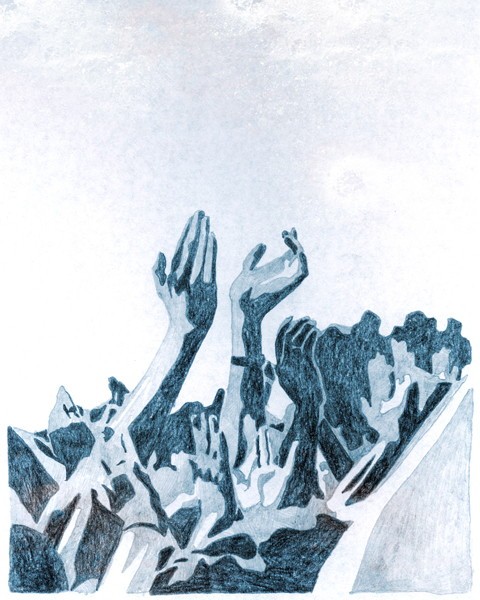Taking it to the streets
A lot more goes into organizing Winnipeg’s numerous street festivals than you’d think
This weekend one of Winnipeg’s fastest growing festivals is celebrating its fifth year running, and no, it’s not at Bird’s Hill Park. The Sherbrook Street Festival is just one of several block-parties that happen throughout the warmer months in Winnipeg.
According to Kenny Boyce, manager of film and special events at the City of Winnipeg, festivals like it are cultural initiatives that “are good for Winnipeg [and] make [the city] a creative and cultural center.”
Michelle Slota, who organizes the Sherbrook Street Festival, said the festival has grown since its inception.
“Last year our numbers doubled since the year before,” she said. “People seem to be happy and excited about it, and supportive.” She expects even larger crowds for this year’s festival, slated for Sept. 12.
Slota said the help of volunteers from the community and business participation are among the biggest factors in the festival’s success.
Street festivals vary in size, but are all handled by the same municipal department. Some, like the Osborne Street Festival on Canada Day, draw larger numbers and have content for older audiences.
Others are more focused. The Chinatown Centennial Festival happened last weekend, and featured traditional Chinese food and culture.
Some festivals draw on a diverse community to build the festivities.
Nathan Dueck, a hat maker, sold his hats at the Beverly Street Festival last year. Though Dueck lives a few blocks away, he was interested in the very local presence at the festival.
“One of the bands – the D.Rangers – played and one of the band members lives on the street,” he said.
“ When evaluating an event, the City of Winnipeg takes three things into consideration: What sort of impact it will have in terms of the mess left behind; the benefits for surrounding businesses; and the benefit to the community
Dueck draws a distinction between different kinds of festivals, but says he isn’t sure of his preference as a vendor. While he said at small festivals, “you never know how any amount of exposure will help,” he sells a lot more hats at the Winnipeg Folk Festival.
But sales aren’t everything. After attending the Osborne Street Festival, Dueck decided he won’t apply to be a vendor there due to the anonymity of the crowds.
“At smaller events it’s always a community feeling,” he said.
The Sherbrook Street Festival tries to host activities as diverse as the community that surrounds the neighbourhood, according to Slota.
The festival is motivated by community outreach and features family activities like face painting and horse-and-carriage rides. The festival also extends into the night with live music and a licensed patio.
“Drinking is a big part of festivals,” said Boyce at the City of Winnipeg.
For Slota, coordinating with the Manitoba Liquor Control Commission was a lot of work, but the patio will add a new element to the festival.
She adds that the key to a successful event, in the city’s opinion, is summed up in one word: Safety.
The reason for permits and city involvement according to Boyce is for the festival’s benefit.
“We make sure the streets are closed off properly and make sure the event is not disrupting infrastructure.”
“The city is very event-friendly,” Boyce said.
He sees the coordination of festivals and events as a testament to the culture of Winnipeg.
When evaluating an event, his department takes three things into consideration: What sort of impact it will have in terms of the mess left behind; the benefits for surrounding businesses; and the benefit to the community.
To get the support of businesses, festivals organizers must petition them and come up with a majority of support. Often these petitioners will provide financial support. The Sherbrook Street Festival is largely funded by West Broadway Biz and the West Broadway Development Corporation.
Political factors are also involved and Boyce said funding can be provided by councillors if the political will is there.
It is for Slota and Sherbrook Street, who gained the support of councillor Jenny Gerbasi.
While the political move might look good and businesses might seem open to the advertising for an apparent good cause, there is doubt about the lasting effect of festivals in community building.
In addition to the anonymity of large festivals like Osborne Street, Boyce said that festivals need to make money, as they can be expensive. A one-off festival that can’t make ends meet lacks the momentum to bring people out.
Slota says now that the Sherbrook Street Festival has been running for a few years, it’s easier to organize.
She adds that given the continuing success of the Sherbrook Street Festival, people who in the past had not-so-positive feedback about the West Broadway neighbourhood are now changing their opinions.
The festival not only brings out the local community, but, according to Slota, “gets people outside of the community to see what it has to offer.”
Published in Volume 64, Number 2 of The Uniter (September 10, 2009)







